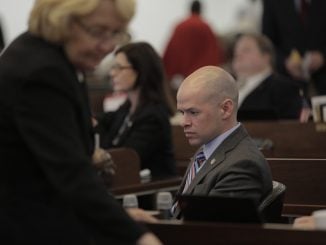
RALEIGH — N.C. Democrats are confronting a trend working against them in the last 30 years of elections: they’ve won just two U.S. Senate races in that time frame.
In the 10 U.S. Senate races in that time (1992, 1996, 1998, 2002, 2004, 2008, 2010, 2014, 2016, 2020) they’ve managed to win just twice, 10 years apart, in elections in 1998 and 2008.
Democrats won both of those races by denying Republican incumbents a second term.

John Edwards, a trial lawyer who burst on the state political scene, defeated Republican Lauch Faircloth in 1998. Edwards, of course, would go on to run for president twice and was John Kerry’s vice-presidential nominee in 2004. After a spectacular fall from grace, Edwards is back to practicing law in the state.
Ten years after Edwards won, it was then-state Sen. Kay Hagan defeating an incumbent, Elizabeth Dole.
That race, which was historic for featuring two women for a major statewide office, turned nasty and is best remembered for an infamous ad run by Dole’s campaign. That ad, which cited an endorsement from an atheist organization for Hagan, coupled with the energy and enthusiasm behind the coattails of Barack Obama, likely resulted in Hagan’s victory.
In two cases, the state’s so-called “blue moon” elections could have resulted in wins for Democrats. The political environments in 2006 and 2018 cost Republicans nationally, losing both the House and Senate in ‘06 and the House in ‘18. With one-third of Senate races contested every two years, though, both years happened to fall with no race on the ballot for N.C. voters.
Republicans Faircloth, Jesse Helms, Richard Burr, Dole, and Thom Tillis each won races, with Burr winning re-election twice and Tillis most recently re-elected in 2020. Their races were not without their own unique features.
Faircloth, a longtime Democrat, switched parties not long before running for Senate and won the Republican race in 1992, defeating Terry Sanford. In a sign of the political environment, Faircloth boasted he wanted to be the state’s conservative senator — no small feat given the other seat had been held by Helms since 1973.
In 1996, Helms would win re-election for the final time, in a rematch against his 1990 opponent, Harvey Gantt.
The 2002 race would see an N.C. native return home to succeed Helms. “Liddy” Dole, as she was known, acquitted herself well in an early presidential campaign in 2000 and was treated as a celebrity when she announced she would seek election to the chamber where her husband, Bob Dole, had served. Democrats in that race would run Erskine Bowles, who was a former chief of staff for President Bill Clinton.
State Democrats liked what they saw in Bowles, and he was also the nominee in 2004 against Richard Burr, a Winston-Salem Republican who had served in Congress for 10 years before running for Senate. Burr was recruited into the race by members of President George W. Bush’s political team. In the summer months before the ‘04 election, he trailed Bowles by 20 points in public polling. Yet he would come from behind to defeat Bowles and become the state’s junior senator and the replacement for Edwards, who would not deliver his home state in the presidential election.
Burr would subsequently win re-election in the Tea Party wave of 2010 by an astounding 14 points over Elaine Marshall, the Democratic Secretary of State. When he ran in 2016, he told voters it would be his last term in Washington.
The two elections featuring Thom Tillis coincided with a Republican takeover of state government. Tillis made a name for himself helping drive Republican victories in the 2010 elections and became speaker of the N.C. House of Representatives in 2011.
A Mecklenburg County Republican, Tillis helped engineer significant changes in state government and would parlay his statewide exposure into a Senate run against Hagan in 2014. As Hagan sought to make unified Republican control of state government the main issue in her re-election bid, it was Tillis who used the rise of ISIS and growing discontent with the Obama administration to win a narrow victory and give the state two Republican senators after six years of split representation.
The most recent Senate race, in 2020, saw Tillis and Democrat Cal Cunningham spend historic sums of money. But it was an October weekend that would see the race fundamentally altered, when in succession President Donald Trump contracted COVID-19, Tillis announced the next day he had the virus, and then Cunningham confirmed racy texts that indicated a months-long affair would surface.
With Tillis recovering, Cunningham floundered and admitted to the affair with a California political strategist. Tillis won the race by 96,000 votes for a second term in the Senate.
The political environment as it stands appears to be a positive for Republicans. The approval ratings for President Joe Biden and Democrats nationally have cratered since his inauguration in January. Every indication from public polling suggests widespread dissatisfaction with inflation, the priorities of Democrats and single-party control in Washington.
Yet one fact remains true in politics: you can always expect the unexpected.



